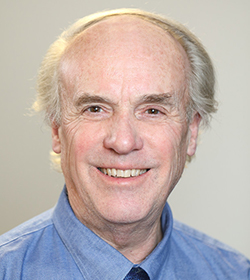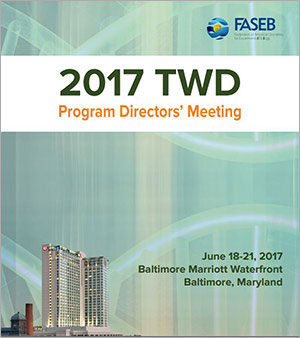 Dr. Tony Beck. Credit: NIGMS.
Dr. Tony Beck. Credit: NIGMS.
We’re greatly saddened to share that L. Tony Beck, Ph.D., died of natural causes on April 7, 2025, while on the NIH campus. He was heading to the job that defined the later part of his career, which was serving as the program director for the Science Education Partnership Award (SEPA) program. Tony also oversaw the STEM interactive digital media small business (SBIR/STTR) and IDeA Networks of Biomedical Research Excellence (INBRE) programs for NIGMS.
Path to a Scientific Career
Tony was born in Rancho Cucamonga, California. He earned a B.A. and an M.S. in biological sciences at the University of California, Riverside (UC Riverside), and a Ph.D. in cell and molecular biology from the University of California, Irvine. He conducted postdoctoral research at the University of Colorado Health Sciences Center and the Eleanor Roosevelt Institute for Cancer Research.
Continue reading “Remembering L. Tony Beck”

 The 2017 Training, Workforce Development, and Diversity (TWD) Program Directors’ Meeting, organized through a grant to the Federation of Associations for Experimental Biology, took place June 18-21 in Baltimore. This biennial meeting brought together the community of faculty, staff and administrators who manage TWD undergraduate and predoctoral training programs across the nation to network, share best practices for program improvement and connect with NIGMS staff. This year, participants presented more than 100 posters. Plenary sessions and keynote talks described innovative approaches for training and evaluation, efforts to enhance diversity in the biomedical workforce and more.
The 2017 Training, Workforce Development, and Diversity (TWD) Program Directors’ Meeting, organized through a grant to the Federation of Associations for Experimental Biology, took place June 18-21 in Baltimore. This biennial meeting brought together the community of faculty, staff and administrators who manage TWD undergraduate and predoctoral training programs across the nation to network, share best practices for program improvement and connect with NIGMS staff. This year, participants presented more than 100 posters. Plenary sessions and keynote talks described innovative approaches for training and evaluation, efforts to enhance diversity in the biomedical workforce and more.